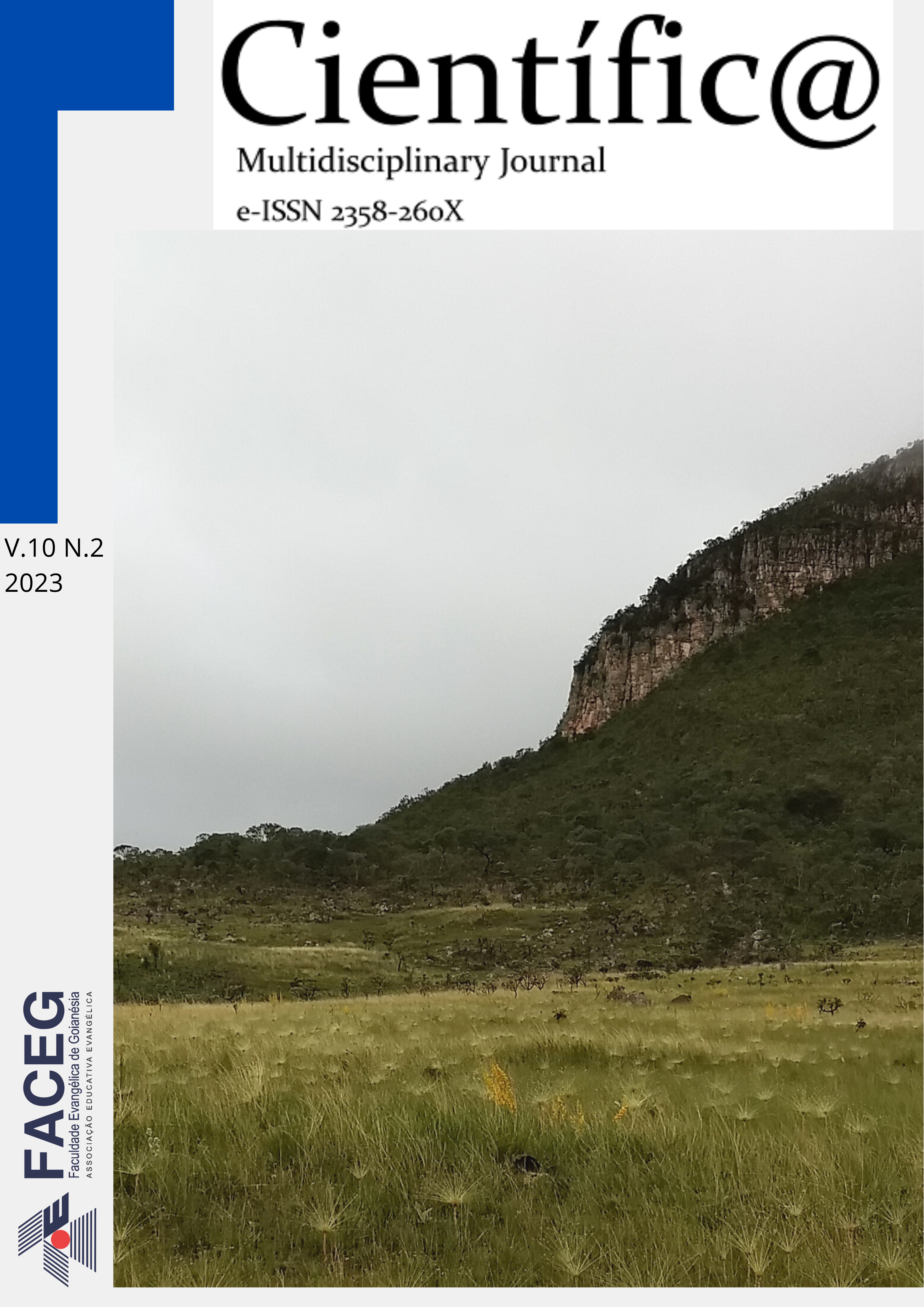CARACTERIZAÇÃO DA SUINOCULTURA EM CERES-GO: PRODUÇÃO, MANEJO, ALIMENTAÇÃO E SANIDADE
DOI:
https://doi.org/10.37951/2358-260X.2023v10i2.6963Resumo
A caracterização da suinocultura local poderá fornecer subsídios para o desenvolvimento da atividade e estratégias de enfretamento dos possíveis fatores limitantes. Sendo assim, objetivou-se caracterizar a suinocultura de Ceres-GO nos aspectos de produção, manejo, alimentação e sanidade. A pesquisa foi desenvolvida mediante aplicação eletrônica de questionário semiestruturado entre suinocultores. Os participantes responderam a questões socioeconômicas e referentes à suinocultura de forma anônima. Os dados foram submetidos à análise descritiva com ênfase na distribuição de frequência. Participaram efetivamente da pesquisa 35 suinocultores. Observou-se predominantemente suinocultores do sexo masculino (77,1%) com idade entre 49 e 64 anos (60,0%), com ensino fundamental concluído (42,9%). Para 80,0% dos participantes a suinocultura não foi elencada como principal atividade desenvolvida. Predominaram propriedades que tinham área de até 10 hectare (ha) (54,3%), com rebanho de até 20 suínos (54,3%). A força de trabalho familiar foi predominantemente aplicada (86,0%), e a dieta dos suínos composta por ração associada a outros tipos de alimentos (60,0%). A origem de água fornecida aos suínos era proveniente, principalmente, de poços artesianos (43,0%). As paredes das instalações eram construídas em alvenaria (51,0%) com piso de concreto (94,0%). A assistência técnica nas criações foi escassa (3,0%) e o uso de medicamentos/vacinas foi frequentemente verificado. Constatou-se a presença de outras espécies coabitantes em 26,0% das propriedades e as carcaças dos animais tradicionalmente eram destinadas ao consumo familiar com venda do excedente, principalmente no próprio estabelecimento. A suinocultura em Ceres-GO apresentou perfil de subsistência, sendo atividade que contribui com a segurança alimentar e diversificação da renda das famílias. A ausência do acompanhamento profissional é limitante e imbuem riscos sanitários à saúde pública e aos suínos.
Downloads
Publicado
Como Citar
Edição
Seção
Licença
Esta revista oferece acesso livre imediato ao seu conteúdo, seguindo o princípio de que disponibilizar gratuitamente o conhecimento científico ao público proporciona maior democratização mundial do conhecimento.
A partir da publicação realizada na revista os autores possuem copyright e direitos de publicação de seus artigos sem restrições.
A Revista Científic@ - Multidisciplinary Journal segue os preceitos legais da licença Creative Commons - Atribuição-NãoComercial 4.0 Internacional. 

